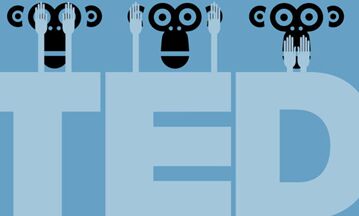说点脏话也无妨
|
I gave a TEDx talk organised by London Business School a few weeks ago. I did not think it went particularly well — all the faffing and rehearsing that TED demands had the effect of making me a cheesy, stilted version of myself. As I skulked offstage, an MBA student came up to me in a state of great excitement. “That was awesome!” he said. I demurred but he went on: “I couldn’t believe you said that!” This was puzzling, given I had just spent 18 minutes giving a motherhood-and-apple-pie talk about why I was junking journalism to be a maths teacher. Then he explained: “You said the word bullshit! In a TED talk!”
We stared at each other in mutual amazement. He was shocked at my use of the word. I was shocked at his shock. To me bullshit is not a swear word: it is my meat and potatoes. It is what I have written about for decades. I use the word because there is none other that does the trick. I suppose I could say “nonsense” instead, but that would be a euphemism. And euphemism is almost always bullshit. Yet recently I have noticed something odd is happening. The corporate world, despite producing bullshit in ever greater amounts, is increasingly prudish about the word itself. When I wrote a column on how to spot bullshit, a reader posted underneath: “I object to using BS (spelt out) in a daily newspaper, especially one as esteemed as the FT. These points can be made just as well without scatological language.” A surprisingly large number of Financial Times readers recommended the message. Equally, when Travis Kalanick banged another nail in his own coffin by getting caught on camera yelling at an Uber driver, the headlines were about his swearing. He said the dread word “bullshit” at least three times, but his real offence was that he refused to listen to the financial woes of the driver, preferring to jab his finger and shout in an obnoxious fashion. My all-time favourite story of misplaced prudery over swearing comes from Goldman Sachs. During the financial crisis a leaked internal email described one of its mortgage-backed securities as “one shitty deal”. The bank’s response? An anti-swearing policy, which meant henceforth employees would be protected from language that might upset them. While companies become more priggish, the evidence mounts that swearing at work is something we should be encouraging. I have just been sent an advance copy of Swearing is Good for You: the Amazing Science of Bad Language by Emma Byrne, an impressive catalogue of research showing how effing and blinding helps us deal with pain, bond with others, is associated with intelligence and makes us more inclined to trust each other. It is a glorious, uplifting read, but I do not think it quite gets to the heart of it. My own research shows how swearing can help you be more successful by getting your point across and having your own way. I have just searched the 41,000 emails in my FT inbox for the word fuck and got 146 results. Most were from friends and colleagues engaging in banter, yet the few that came from strangers used expletives to great effect. One man emailed asking for my help on something with a message that began: “Your podcasts are fucking fantastic.” The addition of the swear word slowed me down, made me judge the outrageous flattery to be sincere and tricked me into saying yes. In another, a reader forwarded a message that he had received from a McKinsey consultant that ended “Bests”. “Who the fuck says ‘bests’?” the reader wrote. Once again, I paid attention, laughed and put it in my bullshit cupboard with a view to giving it a prize. Just in case anyone priggish is reading this, I ought to end with something obvious. Context is all. Swearing is only recommended for people who are amiable and know how to communicate. It should never be used by those who are nasty or angry. Among the messages in my collection was one from a man who had taken exception to something I had written. His stream of obscenities deserved to be deleted unread, but I have kept it as evidence that swearing can still hurt and disgust — when it is used with just that intention. |









